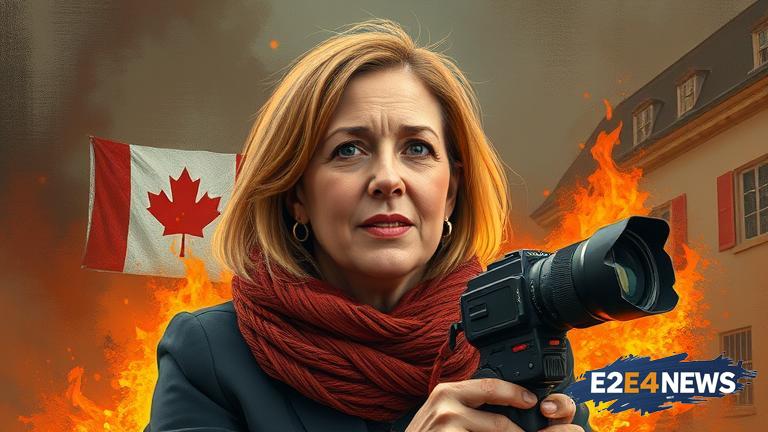A shocking revelation has rocked the journalism world as Canadian journalist Valerie Zink announced her resignation from Reuters, citing the agency’s alleged role in enabling the deaths of 246 journalists in Gaza. Zink’s resignation has sparked a heated debate about the responsibility of media organizations in conflict zones. According to Zink, Reuters has failed to take adequate measures to protect its journalists, particularly in Gaza, where the agency has been accused of downplaying the risks faced by journalists. The Canadian journalist claimed that Reuters has a history of ignoring warnings and neglecting the safety of its staff, which has resulted in the deaths of 246 journalists in Gaza. Zink’s allegations have been met with widespread outrage and condemnation from human rights groups and journalist organizations. The International Federation of Journalists (IFJ) has called for an immediate investigation into Zink’s allegations, stating that the safety of journalists is a fundamental human right. The IFJ has also criticized Reuters for its handling of the situation, accusing the agency of attempting to silence Zink and cover up its alleged wrongdoing. Meanwhile, Reuters has denied Zink’s allegations, stating that the agency takes the safety of its journalists very seriously and has implemented numerous measures to protect them. However, Zink’s resignation has raised questions about the agency’s commitment to journalist safety and its willingness to prioritize profits over people. The incident has also highlighted the dangers faced by journalists in conflict zones, where they often risk their lives to report on critical stories. The Gaza Strip has been a particularly hazardous region for journalists, with many facing harassment, intimidation, and violence while attempting to report on the conflict. Zink’s resignation has sparked a wider conversation about the need for media organizations to prioritize journalist safety and take concrete steps to protect their staff. The incident has also raised questions about the role of media organizations in perpetuating conflict and the impact of their reporting on the safety of journalists. As the debate continues to unfold, one thing is clear: the safety of journalists must be a top priority for media organizations, and those who fail to protect their staff must be held accountable. The incident has also sparked a conversation about the importance of independent journalism and the need for journalists to be able to report freely without fear of reprisal. Zink’s resignation has been hailed as a courageous move by many, who see it as a testament to her commitment to journalist safety and her refusal to compromise her values. However, others have criticized Zink’s decision, arguing that it will have a chilling effect on journalism and deter others from speaking out against injustice. As the situation continues to unfold, it remains to be seen how Reuters will respond to Zink’s allegations and what steps the agency will take to address the concerns raised by her resignation. One thing is certain, however: the incident has highlighted the need for greater transparency and accountability in media organizations and the importance of prioritizing journalist safety above all else. The incident has also raised questions about the impact of media organizations on the communities they serve and the need for journalists to be aware of their own biases and assumptions. Ultimately, Zink’s resignation has sparked a critical conversation about the role of media organizations in society and the need for journalists to be able to report freely and safely. The incident has also highlighted the importance of supporting journalists who are willing to speak out against injustice and the need for media organizations to prioritize their safety and well-being. As the debate continues to unfold, it is clear that the safety of journalists must be a top priority for media organizations, and those who fail to protect their staff must be held accountable.
